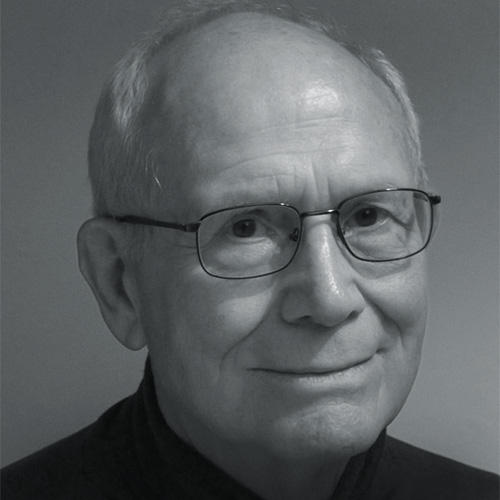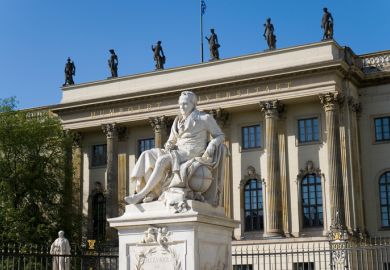Leon Trotsky famously saw war as the locomotive that would force the speed of historical change and enable worldwide socialist revolution to circumvent the prerequisites of classical Marxism, but capitalism proved resilient. The revolutionary failed, Peter Clarke argues, to understand “the relationship between western capitalism and democracy under conditions of war and peace alike”. It was a relationship that would lead to policies introduced to cope with the tests of war that would lead to a modified capitalist system and a less unequal society in liberal-capitalist states.
A major theme of Clarke’s works since his first book, the influential Lancashire and the New Liberalism, has been the adaptation of liberalism to new social and economic circumstances. In the Locomotive of War, he adopts a transatlantic focus and depicts the effects of war on British and American liberals as they reacted to the challenges and strains of the First World War. This is no broad (or indeed dispassionate) account, for the author’s aim is to “capture an understanding of events and causation as viewed at the time through the spectacles of Anglo-American liberalism”. It is the history of an elite group, its changing views and its considerable influence, and this concentration on a small number of men who did much to shape the history of their time gives the study its originality and strength. The Anglo-American dimension is crucial, for despite many differences between the US and Britain, liberal politicians and thinkers in the two countries had common assumptions and a shared inheritance in the enduring moral emphasis of William Gladstone.
We meet the principal actors in early chapters: Woodrow Wilson, David Lloyd George, Winston Churchill, Franklin Delano Roosevelt and John Maynard Keynes. All but Lloyd George came from upper-class backgrounds, and these heirs to Gladstone enjoyed the comfort and privileges that were integral to the life of their class before 1914, a virtual Garden of Eden, as it seemed to many of them in retrospect. None were socialists and all believed that “the reform of the economic system was possible without abolishing capitalism”, a belief manifested in Lloyd George’s and Churchill’s pre-war welfare reforms and Roosevelt’s New Deal of the 1930s. Apart from their common progressive liberalism, they were a far from homogeneous group. Only Wilson with his Calvinist belief in divine providence retained the full religious faith that had underpinned much of 19th-century liberalism; although Christian morality had been channelled into the secular thinking of the others, the Bloomsbury ethos of Keynes was a long way from the mindset of Gladstone. All, however, were to play a part in transforming the role of government and the workings of the economic system.
Clarke faces a problem in explaining why and how the Liberals, who prided themselves on being in essence pacific, “started a World War”. His answer – that the German invasion of Belgium was the root cause of both the British Liberal government’s decision to go to war and America’s later involvement – is, however, debatable and rather too kind to both governments. If it was Belgium’s fate that eventually enabled those, in an initially divided Cabinet, who favoured going to war to prevail, there were other less morally elevated reasons for Britain’s slide into conflict, including the secret military discussions with the French and the impact of internal British politics. It is equally questionable whether the issue of Belgium was quite so decisive in Wilson’s belated declaration of war.
The impact of Germany’s invasion of Belgium on liberals in both Britain and America was, however, crucial when it came to justifying the war, and Clarke is persuasive in seeing the treatment of Belgium as reawakening in liberals the old Gladstonian moral horror at the invasion of a small country, and enabling them to draw upon their religious inheritance and characterise Germany’s conduct as a sin demanding punishment. The war came to be seen as a struggle against dark forces, and much of progressive opinion remained behind the war effort despite mass casualties and the infringing of liberal shibboleths. The disadvantage was that this view served to weaken attempts at a negotiated settlement to end the conflict, and foreshadowed the war guilt and reparations clauses of Versailles.
The cast having been assembled, Clarke follows its members through the First World War and, via the Paris Peace Conference, into the post-war world. Some had “good wars”: Lloyd George became prime minister and dynamic prosecutor of the war effort, although at the price of splitting the Liberal Party; Wilson was re-elected and brought the US into the war; while Roosevelt enjoyed a more modest success as US assistant naval secretary. Churchill, who had been so bellicose in 1914, had a disastrous war, with his political future seemingly finished after the failure of the Gallipoli campaign. Yet increasingly it is Keynes, someone the wartime British public would have been unaware of, whom Clarke moves to centre stage.
The ubiquity of Keynes is, however, amply justified, not only because of his subsequent massive influence on economic theory and practice, but because he epitomises the changes in liberal thinking that the experience of war brought about. The paradox is that during the war this Treasury official and future proponent of interventionism hardly changed his views from those that he held pre-war. It was Lloyd George who appreciated that the war effort demanded the introduction of conscription, an issue that divided the Liberal Party as it broke a hitherto sacrosanct liberal principle. When it was introduced, Keynes took the somewhat ridiculous stance of pleading conscientious objection, while knowing that he was exempt due to his reserved position. When it came to the control of the wartime economy, it was Lloyd George who was the proto-Keynsian, while Keynes remained opposed to conscription and stayed true to the holy trinity of balanced budgets, free trade and the international gold standard. The 20th century’s most influential economist changed his views because of the experience of war, but after rather than during the conflict.
During the Paris Peace Conference, Wilson would become increasingly estranged from America’s imperially ambitious European allies, and also, as he found to his cost, from American public and Congressional opinion as he sought to remake the world along the lines of his idiosyncratic combination of Gladstonian morality and American exceptionalism. It also caused the great falling-out between Lloyd George and Keynes. The latter, although he had helped frame the war guilt clauses, withdrew to write The Economic Consequences of the Peace, his attack on the reparations that would be imposed on Germany.
Keynesian economics are usually seen as having been devised to answer interwar problems, and Keynes, having renewed his association with Lloyd George, provided many of the policies proposed by the latter in the later years of the 1920s. For Clarke, however, it was the experiences and consequences of the war that changed Keynes’ outlook and provided the economic basis of the liberal or social democratic consensus that endured in the Western world until the 1970s. Whether that consensus was as satisfactory or as stable as is implied here is a matter of opinion, but Clarke’s contention that the encounter between the locomotive of war and Edwardian liberal certainties had much to do with its making is amply proven in this important and very enjoyable book by one of our most distinguished historians.
A.W. Purdue is visiting professor of history, Northumbria University.
The Locomotive Of War: Money, Empire, Power and Guilt
By Peter Clarke
Bloomsbury, 432pp, £25.00
ISBN 9781408851654
Published 9 February 2017
The author

Peter Clarke, professor emeritus of modern history at the University of Cambridge, was born in the Peak District, but brought up on the South Coast in Eastbourne. He recalls: “I had to change my accent as a child – was mocked in both places – and still feel some sense of negotiating between different cultures and experiences.”
A lover of books from an early age, he “read Arthur Ransome’s Swallows and Amazons by myself aged seven – and was told off by a teacher for lying when I said I had. I read Jane Eyre when I was nine: my first grown-up book. And later I had a wonderful history teacher at grammar school who told me: ‘Clarke, be busy with big books’.”
He took his undergraduate degree at Cambridge. “I was so lucky to be at St John’s College, where ‘scholarship boys’ were so readily accepted in the 1960s. I had great historians as teachers, but I admit I spent every winter afternoon on the rugby pitch!”
Clarke’s time at the University of Cambridge – from undergraduate to master of Trinity Hall and beyond – began more than five decades ago. How has his view of the university changed over time?
“I have always wanted others to have the wonderful opportunities that I had enjoyed, with full fees and maintenance paid by a state scholarship in those days. I became master of Trinity Hall almost by accident – it seemed like an interesting challenge when I was asked – and I even enjoyed fundraising when I thought of the ways that this could open the college’s doors to students from non-traditional backgrounds.”
If he could change one thing about Cambridge, what would it be?
“The biggest change I wanted has already happened – all the colleges now admit women. And I am proud of working in the history faculty to recognise, and thus begin to remove, stubborn gender inequalities rooted in a culture that we have now left behind.”
In an age of Brexit, Trump, populism and austerity: what would John Maynard Keynes do?
“We don't know – he would be 134 this year,” Clarke observes. “But the root of his thinking is still so relevant in today's world: that prosperity is cumulative if only we have the confidence and vision to generate it and share it widely.
What gives him hope? “The usual answer: my grandchildren. I hope against hope, especially after Brexit, that we will be leaving the next generation better off than the lucky generation of which I have been a member.”
POSTSCRIPT:
Print headline: The liberal struggle against dark forces
Register to continue
Why register?
- Registration is free and only takes a moment
- Once registered, you can read 3 articles a month
- Sign up for our newsletter
Subscribe
Or subscribe for unlimited access to:
- Unlimited access to news, views, insights & reviews
- Digital editions
- Digital access to THE’s university and college rankings analysis
Already registered or a current subscriber?




